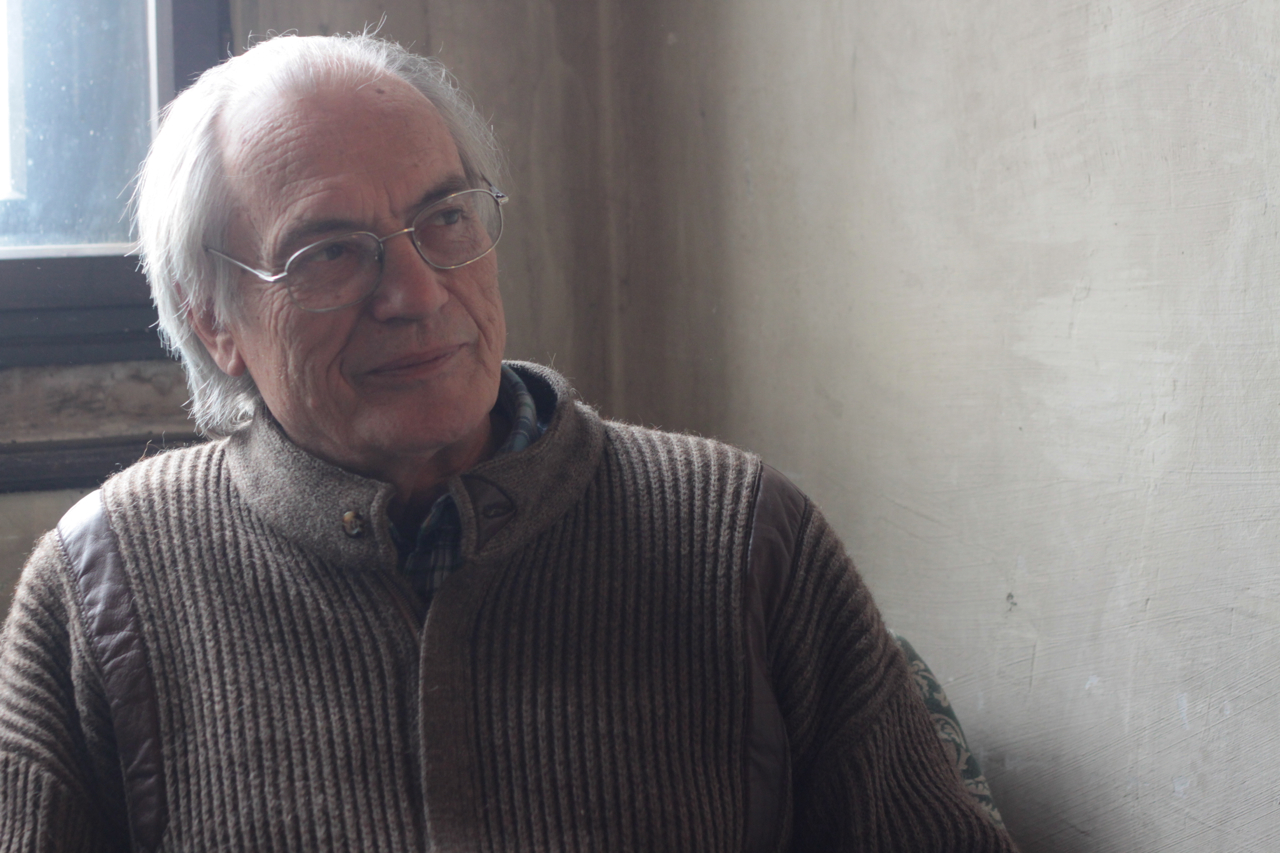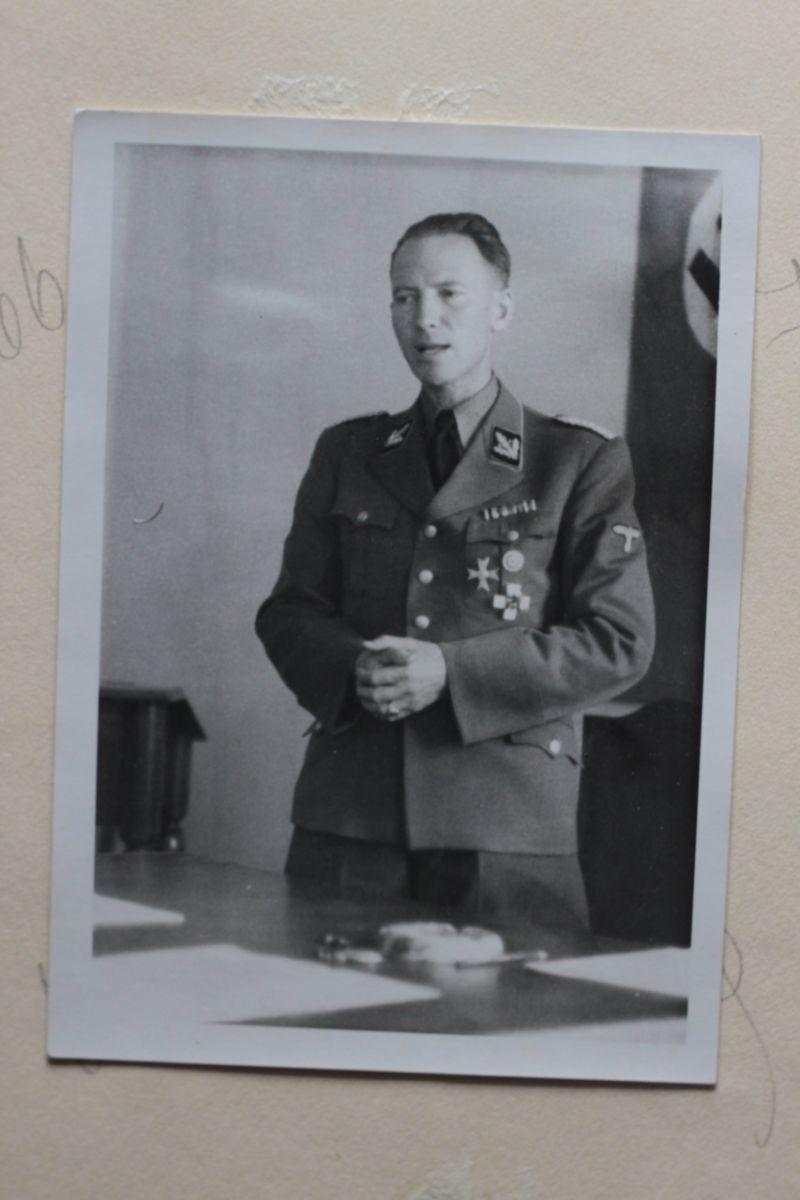(1).jpg)
Click on the image to get all articles
In the second part of the interview (read the first here), Horst Wächter, son of SS (Nazi Party paramilitary force) commander Karl Otto Gustav Freiherr von Wächter, former governor of Galicia (current northwestern Ukraine) and Krakow (Poland), says that his father even made plans to come to Brazil. “He went to Rome in 1949 and there was a doubt about going to South America, to Argentina, and Brazil was also mentioned. It was a moment that only Brazil would have accepted immigrants with nazi past”.
Horst also states that his father's life after war was “difficult”. “He spent four years with a German soldier. Summers and winters in the Alps, moving from house to house. Sometimes he stole food, knew where there were weapons. “
In the first part of the interview (you can read here), Horst told that his father tried to convince Adolf Hitler against the extermination of Jews, because the idea of race superiority is “nonsense”. See the rest of the conversation:
Opera Mundi: What are your personal memories of your father, sir?
Horst Wächter: Personally, I didn’t know him very well. We were “divided”. I had three older siblings – a brother and two sisters – who were much closer to him and knew him better. When the war ended [in May, 1945], I was only six years old and during that period my father was hiding. My older brothers went to visit him in the Alps.
OM: And you didn´t?
HW: We didn´t because we were too young. My mother was afraid that we would open our mouths. She spoke of him as if he were an uncle. He spent his last Christmas [of 1948] with us hiding, secretly. He had people helping him, Austrians. Because there were the Russians, the British. I do not know what they would have done to him if they had found him.
Read in English:
From rowing champion to the Holocaust: unpublished photos reveal Wächter’s trail
OM: Did your mother speak about your father?
HW: Yes, but my mother would never say anything bad about him. He was treated as a sacrosanct. Some letters are missing because she was very jealous of him. She even tried to get a divorce because he went with a secretary to Budapest, but she never doubted him … After the war things were not like today. The whole thing was still happening. He went to Rome in 1949 and there was a possibility of going to South America, Argentina, and Brazil was also mentioned. It was a moment when only Brazil would have accepted immigrants with a Nazi past. Brazil was mentioned, and maybe he would have gone there as well? (laughs)
Roberto Almeida/Opera Mundi

Horst Wächter says his father thought about going to Brazil
But my mom was totally against emigrating because she had all the family and friends in Austria. That would have been too difficult for her, she already had moved a lot as well. After the Putsch, my father went to Berlin and settled there. Of course he found a girlfriend in Berlin, and then, my mother moved to Berlin just before the Anschluss [annexation of Austria in 1938]. Then they moved to Vienna, and afterwards Poland, and when the war started she wanted to buy a house in the countryside near the [lake] Zell am See, in Salzburg, which had been owned by the Catholic party. We spent almost every summer there. We were raised like that during the war until 1942, when we left Lemberg because it was getting increasingly dangerous to stay there.
OM: What exactly happened in the period between the end of the war, in 1945, and the year of his death, in 1949
HW: This is always written wrong. It was written that he went to Rome and had a good life. I have a copy of a communist newspaper from 1949, when circulated the message of his death [in September of that year], saying Wächter spent time in luxury yachts, while workers had nothing.
OM: In the same period he met [Alois] Hudal [a bishop who facilitated the escape of Nazis to South America].
HW: He spent four years with a German soldier, summers and winters, in the Alps, moving from house to house. Sometimes he stole food, he knew where there were weapons. Did he have a good life? More or less. A difficult life. But for my mother it was too difficult. She had to carry groceries, arrange meetings. It was too much for her, because she had six children to take care of. My grandfather was living with her, and she was not in good physical conditions, you know?

NULL
NULL
OM: Where was she during this period?
HW: In Salzburg. In 1947 we moved to Salzburg. My mother's family was very rich. The properties were confiscated after the war, but my uncles built electric heaters, refrigerators, etc.. [And they had a house in the area]. She wrote to the soldier’s mother asking him to seek his son. Soon the mother appeared and sought the soldier. My father had no ability on practical things, joinery; he was not that kind of man. Then he moved to the house in Salzburg, but it was too dangerous, and then he went to Italy. He also spent time in the south of Tyrol [region of Austria] and then there was the story of Hudal and the connection with South America.
OM: Was he able to get a Red Cross passport?
HW: I have some letters that say he tried. Anyway, he was living in Rome, in contact with Hudal, and stayed in the monastery. My mother refused to emigrate. It is not very clear. He looked for all these contacts with connections in South America, but I’m not sure he would have immigrated alone to South America. He was very attached to the family. In every letter he always mentions the children. I do not think he could … the history of South America .. I'm not sure he could have emigrated. Either way, he met an Italian cinema businessman and got some money from him, he was quite proud. This was just before he died. But maybe it was too much for him too. He lived this life in nature, in the Alps, then went to Rome and swam every day. But the channel was always polluted with Rome’s waste. So I think he really got jaundice and died. Some say he died of poisoning, but I think is pretty obvious that he died of jaundice.
Horst Wächter/Arquivo Pessoal
 OM: Did you see him during that period?
OM: Did you see him during that period?
HW: He spent the Christmas of 1948 with us in Salzburg. I remember he came in our room and saw us sleeping. Of course we realized that there was a person there, but my mother told us that he was an uncle who also had six children. She also told us that he was from South America. I just remembered it now that you asked me. And she also said: “Someday we will be reunited.” That's what I remember about him. He had a mustache.
[Otto Wächter with the nazi flag behind]
OM: Do you remember any more details about this moment that you reported — the goodbye and the mention to South America—, sir?
HW: I just remembered that now. I didn´t remember that before. I remember she spoke of South America and it came to my mind. Then she might have planned … because she had an extraordinary love for him, and he was very dependent on her. She did everything for him. I do not think that every woman would do everything she did.
OM: But she didn’t want to emigrate…
HW: I think she would have emigrated in the end, if he had gone. But things were different. He thought he could make some money in Rome, adapt to life in Rome. He was a gentleman and, therefore, when he saw he could make money on the movies, he stayed longer in Rome. My mother would have joined him. The first thing she did in the summer [of 1949] was sending the children to stay with relatives, but when she got [to Rome] it was too late. He was buried one week after his death.
OM: Your father’s body was brought to Austria only in 1971.
HW: It was hard. My mother wanted to have his remains back. Every Easter she went to Rome to visit him at the cemetery. In 1954, they [the mother and an older sister] went to Sicily. My sister fell in love and got married there. Unfortunately, my mother could not bring him to Austria, so she wrote that his bones would be sent to Sicily, but she brought the remains illegally into Austria. He is buried in the Tyrol. My mother bought a house in 1967 and he is buried there.





















































